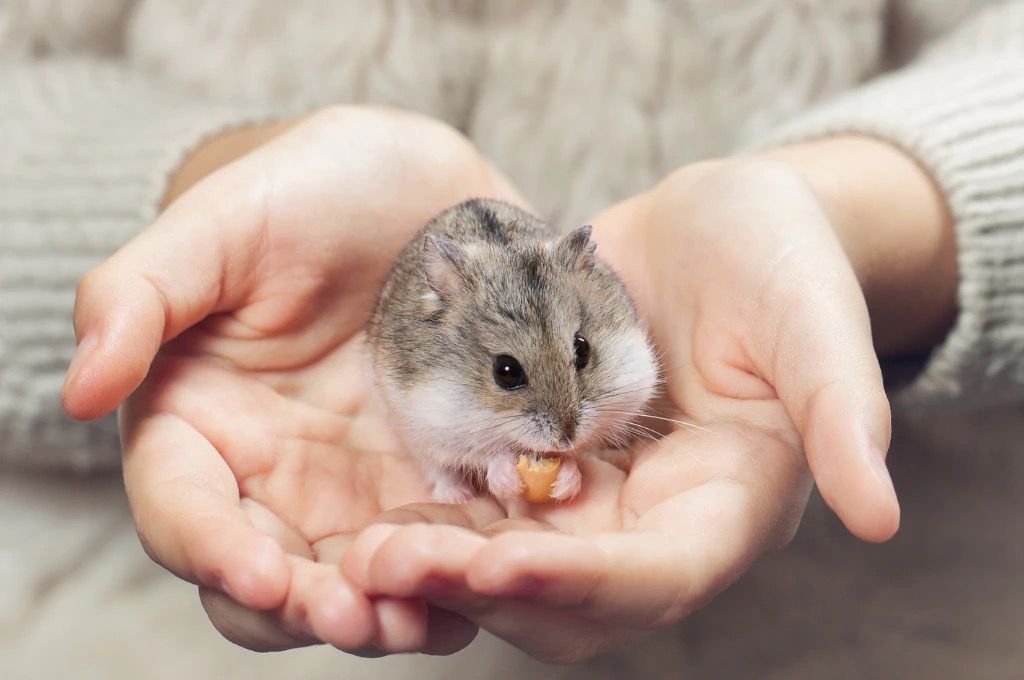You are not signed in.
To view the following content, click on the log in button to sign in.
Small animal care
Learn all about the care and welfare of small animals with our resource page
and species factsheets!
and species factsheets!
Click on the species name to take you to their section.
Chinchillas
Chinchillas are soft rodents that originate from South America. Chinchillas are highly social animals and can live between 10 and 20 years! Even though they are classed as small mammals, chinchillas can reach an impressive 11 inches in length, excluding their tail! They are also nocturnal animals meaning they sleep during the day and are awake at night.
Degus
Degus originate from Chile and are highly sociable animals. In the wild they live in communities with up to 100 individuals. In captivity degus live between 5 to 9 years with the correct care. The species is diurnal, meaning they are most active during the day and spend most of their time foraging for food or digging in their enclosure.
Ferrets
Ferrets are social and lively animals, they need to be kept in pairs or groups, preferably with the same sex. The average lifespan for ferrets is between 6 and 10 years old, however, some can live up to 15 years. Ferrets are classed as crepuscular, meaning they are most active during dawn and dusk; they can sleep up to 20 hours a day!
Gerbils
There are around 90 species of gerbils; the Mongolian gerbil is the one that is commonly kept as a pet. Gerbils are sociable, intelligent, and extremely active so they will need plenty of enrichment to keep them stimulated. This species is also nocturnal, meaning they are most active at night but are occasionally active during the day.
Guinea pigs
Guinea pigs originate from South America and have become very popular as pets. They live anywhere between 4 to 8 years, occasionally even longer. As guinea pigs are social, it’s important to keep them in same-sex couples or small groups. Guinea pigs are also grazing animals meaning they eat small amounts of food regularly. It’s important to provide them with plenty of fruit and vegetables, as well as fresh hay daily.
Hamsters
There are various species of hamsters that all have individual traits and needs that need to be met to keep them happy and healthy. Hamsters generally live around 2 to 3 years and are a nocturnal species. Most hamster species do well on their own, however, there are a few species that enjoy company of the same sex.
Mice
Mice are extremely social animals and need company of their own kind. It’s best to keep them in same sexed couples or pairs. On average mice live up to three years and are fully grown at around three months old. Mice are also nocturnal animals, meaning they are most active during the night. They enjoy building nests, so be sure to provide them with plenty of materials to allow them to carry this out!
Rabbits
Rabbits are popular pets and there are various breeds for people to choose from, it is estimated that there are around 900,00 pet rabbits in the UK. Rabbits are also a social species and enjoy the companionship of same-sexed pairs or groups. They generally live between 8 to 12 years but can live for longer.
Rats
Rats are highly social and intelligent animals and do well in same-sexed pairs or groups. They live for around 2 years; this seems a short time but due to their complex needs they need the correct care. Rats are also nocturnal, meaning they are most active at night, exploring their environment, socialising, and playing.
Some facts about our small furry friends
Pet sitting
To help you reach your full potential when caring for small animals we recommend you take the 'Small animal care' course!

